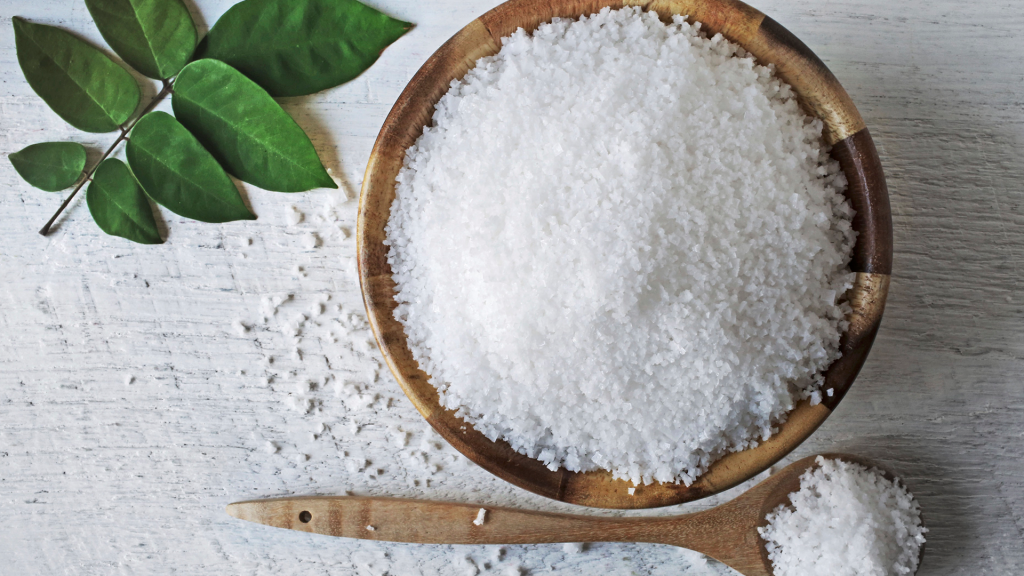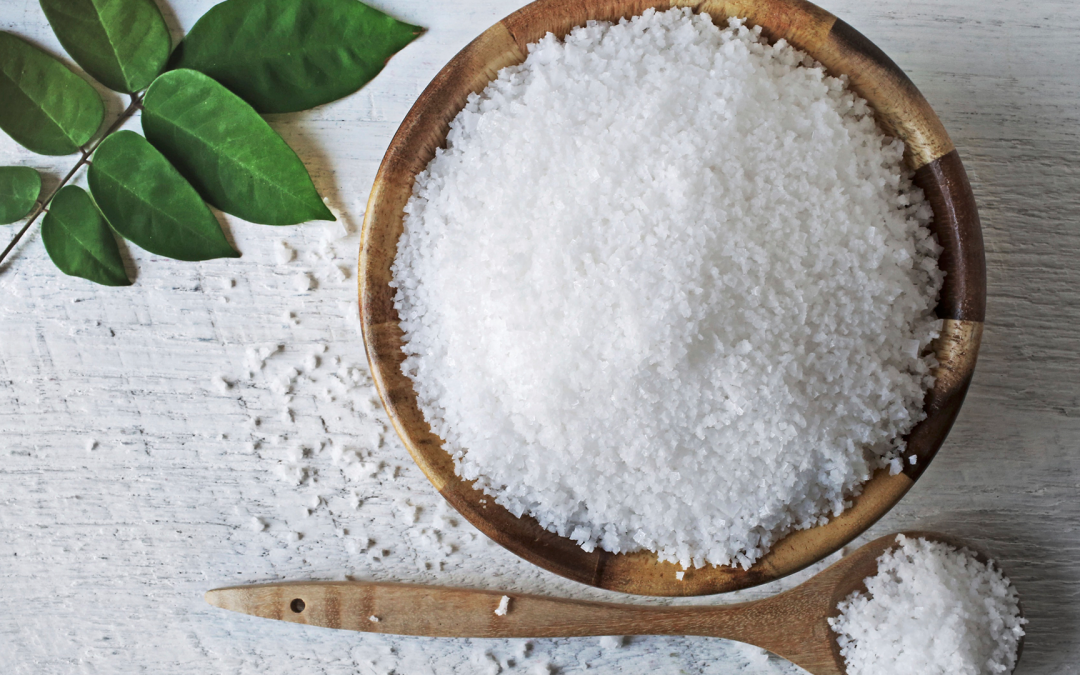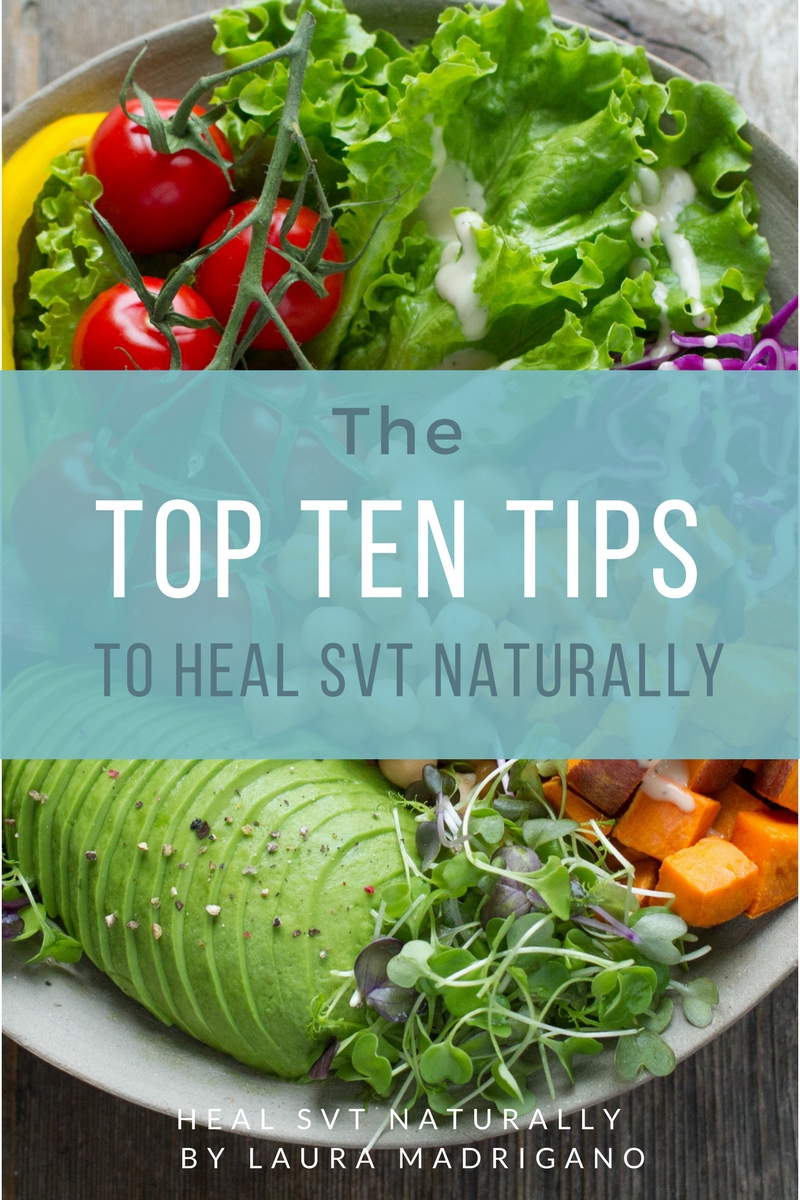Magnesium and SVT:Is Magnesium Essential to SVT Prevention and Good Health?
If you’ve been reading about natural treatments for supraventricular tachycardia (SVT), you probably are learning that magnesium is a very important piece of the SVT prevention puzzle. However, most of us don’t know much about magnesium in general, where we get it, if we should use supplements, what kinds of supplement options we have, how we might be unknowingly depleting our magnesium stores, or what we can do about it.
I first learned about the importance of magnesium when I was searching for help with my migraines years ago. Magnesium can operate as a muscle relaxant, making it an ideal mineral for those who suffer from muscle tension, tension headaches or migraines. “Chronic migraine sufferers often have low levels of magnesium in the body – in fact, this is often one of the prominent symptoms of a magnesium deficiency.” (1)
I continued researching magnesium trying to determine the role that it was playing in the presence of my SVT. In fact it was very interesting to me that I had migraines, SVT and many other symptoms of magnesium deficiency. There is a lot to learn about magnesium, its role in integrative SVT management and why magnesium deficiency is so prevalent today. As such, I’m going to share everything I know about magnesium with you in a series of articles over the next few weeks – starting with this one.
The most basic way to understand magnesium is to know that it’s an essential mineral (a macro-mineral) that impacts the function of every single organ system in the body, especially your heart, and is required for good health. Magnesium is one of one of the six essential minerals that must be supplied in the diet (as we cannot manufacture them on our own). The other five major minerals are calcium, sodium, potassium, phosphorous and chloride.
Magnesium helps to keep the Heart Rhythm Steady!
Without sufficient magnesium stores, we can experience a range of symptoms, including fatigue, insomnia, irritability, brain fog, high blood pressure, restless legs, muscle twitches, and (you guessed it!) irregular heartbeats. Magnesium is also vital for energy, sustaining blood vessels and helping you perform well under stress.
“Magnesium’s role is primarily regulatory. It also allows enzymes to function properly, which in turn enable a vast majority of the body’s chemical reactions. Enzymes are the basis of the body’s ability to function while supporting life”
Magnesium also regulates our electrolyte balance.
This is vital for people with SVT to understand. “Within every cell in the body, a proper balance of mineral content must be maintained. Magnesium’s role in the healthy balance (“homeostasis”) of important minerals such as calcium, sodium and potassium affects the conduction of nerve impulses, muscle contraction, and heart rhythms.” For many people with SVT, electrolyte imbalance is an episode trigger.
Dr. Carolyn Dean, a medical doctor and naturopath who authored The Magnesium Miracle, outlines the other serious health conditions that prolonged magnesium deficiency can cause or exacerbate. These include liver and kidney disease, asthma, depression, anxiety, panic attacks, osteoporosis, heart disease, metabolic syndrome and even cancer.
Yet, despite the importance of magnesium to our health, as many as 80% of people in the U.S. are believed to be magnesium deficient. This is due (in part) to our poor diets (like consuming soda and sugar), but it’s also the result of soil depletion that impacts our produce, pesticides, water treatment and water quality issues, the high stress levels in modern society, and even the ways that we cook and process foods. My second e-guide called The SVT Prevention Diet, explains in more detail the role of magnesium, and the foods to consume and avoid to stop robbing your body of this precious mineral.
Accurately testing for magnesium deficiency can be tricky business. As much as 60% of the body’s magnesium is stored in the bones, with about 40% stored in the body’s soft tissues, and only about 1% available in the blood at any point in time. Because base levels of magnesium in the blood stream are essential to survival, the body will pull magnesium from the bones and muscles before it ever lets blood levels drop. For this reason, Dr. Dean and other medial experts argue that symptoms are the primary indicator of magnesium deficiency.
Some specific symptoms of magnesium deficiency that commonly coincide with SVT include; abnormal heart rhythms, constipation, panic attacks, fatigue, depression, hypoglycemia, migraines, muscle cramps, and insomnia. In the height of my SVT and my early years of trying to track my episodes and make sense of it all, I noticed that many times I would get foot cramps 1-2 days just prior to an SVT. This was always an indicator that an SVT was on the horizon!
If you have anxiety, times of hyperactivity, difficulty getting to sleep or staying asleep, those may be neurological signs of magnesium deficiency and also common co-symtoms of people with SVT. Adequate magnesium is necessary for nerve conduction and is also associated with electrolyte imbalances that affect the nervous system. I also discuss the nervous system, nutrients that are needed to help calm the sympathetic nervous system, and ways to calm the vagus nerve in the SVT Prevention Diet E-guide as well.
Knowing the number of ways that magnesium deficiency can impact our health, especially as it relates to muscle contractions and electrical impulses, it’s no surprise that not having enough magnesium is a major risk factor for SVTs. But don’t panic, magnesium levels can be increased with some special attention to diet and lifestyle changes.
If you’re looking for one quick action you can take to get more magnesium right now, try an Espom salt bath. You’ll be doing your body the double favor of allowing it to absorb magnesium sulfate through your skin, and also  taking a quick minute to relax and de-stress. After your bath (or if you can’t take one right now), try sprinkling a few almonds, cashews, or pumpkin seeds over your next meal. Include some green vegetables such as spinach and Swiss chard, whole grains, and a tall glass of spring water, and you’ll be well on your way.
taking a quick minute to relax and de-stress. After your bath (or if you can’t take one right now), try sprinkling a few almonds, cashews, or pumpkin seeds over your next meal. Include some green vegetables such as spinach and Swiss chard, whole grains, and a tall glass of spring water, and you’ll be well on your way.
I hope that this helps you begin to raise your awareness around magnesium and I look forward to sharing more soon!
Here are some links to the magnesium supplements that I use in case you are interested!
More Heal SVT Naturally RESOURCES for You:
- Get my TOP TEN TIPS to HEAL SVT NATURALLY free e-guide when you sign up for my email list for FREE HERE
- Join The Heal SVT Naturally Private Facebook Group HERE
- Get The SVT Prevention Diet E-book HERE
- Download the Heal SVT Naturally E-books a HERE
- Please comment below with any questions. I LOVE to hear from you and try to answer as many q’s as possible!
I hope this info was helpful for you! Let me know
Love Laura
Your SVT Health Coach
If you have a Heal SVT Naturally Success Story or are using magnesium to help yourself along with Diet I would love to hear more about your success. Your story can help inspire thousands of other people who are struggling with SVT. Please comment below or email me at Lmadrigano@aol.com
Article Resources:
https://drcarolyndean.com/magnesium_miracle/
https://articles.mercola.com/sites/articles/archive/2015/01/19/magnesium-deficiency.aspx
(1) https://www.well-beingsecrets.com/magnesium-health-benefits/






Hi Laura,
I was just wondering if you could recommend that best Magnesium to take for SVT and heart palpitations.
Many thanks
Jo
I personally take this one:https://www.amazon.com/Thorne-Research-Effervescent-Magnesium-Supplement/dp/B0797FBSKY/ref=sr_1_2_sspa?ie=UTF8&qid=1530563119&sr=8-2-spons&keywords=cal+mag+citrate+thorne&psc=1
and I also take a few others depending on my needs. You can read about all the supplements I personally take in my e-guide coming out July 20th, The SVT Prevention Diet e-guide. I will try to do a blog post on it soon…Just need to finish the guide in the next few weeks before I can do anything else;)
I’ve been supplementing with a calcium magnesium pill…400 mg of mag. For six weeks and the flips my heart would do several times a day are completely gon
Hi Laura. I started using a magnesium supplement called “calm” about a year ago. I only take it once or twice a week but feel it really helps. What would be your recommendation for magnesium supplements? I have heard others on your facebook page mention Heart calm and other specific types of magnesium. Could you let me know your thoughts?
Hi Cindy. I use this one, Cal Mag Citrate by Thorne.https://www.amazon.com/Thorne-Research-Effervescent-Magnesium-Supplement/dp/B0797FBSKY/ref=sr_1_2_sspa?ie=UTF8&qid=1530563119&sr=8-2-spons&keywords=cal+mag+citrate+thorne&psc=1
I also mention another one that I use in The SVT Prevention Diet E-guide coming out July 20th 2018. I list all the supplements I take in the guide;)
hi , I have been reading your blog because of my condition related to SVT, I dont want to go for medication for whole life. Is it ok to have only Mg dose of 250 Mg per day as supplement. after taking this dose of 250 Mg , I felt relaxed. Is it Ok to continue it ?
Magnesium has helped my SVT TREMENDOUSLY! I take 2 in the a.m. and 2 in the evening. I barely need my beta blocker which makes me very tired! I spoke to my Cardiologist about it and he says that Mg has been considered the “poor man’s beta blocker “ for years! I use MagSRT by Jigsaw.
thats great to hear! I like jigsaw
Hi there. I am new here but have SVT. I have been in and out of the hospital. This Omaha been very difficult. I wanted to Thankyou for everything you are doing here.
I have been taking 400 mg magnesium supplement for 2 years. I have noticed better sleep, less anxiety about SVT and less episodes. I also am able to get my episodes controlled quicker.
thats great. magnesium is a foundational supplement for svt prevention!
What brand of Magnesium are you taking?
All of the supplements that I personally take are listed on my SHOP page here and I am updating that page today! :https://healsvtnaturally.com/shop-svt/
Thank you for this article! After spraying mag oil on my arms an SVT episode stopped after 2 minutes! And that was after it had gone on for about 2 hours. I did have trouble sleeping last night and a cramp a couple of days before, as well as constipation. I am in disbelief at how quickly this worked for me! Thank you!
Can someone with a blood level of 2.1 still be low in Magnesium?
I have vagus nerve damage and likely mold toxicity (waiting for test to confirm) and have many deficiency signs – muscle cramps, trouble staying asleep, constipation, etc. Additionally I was just diagnosed with C5, C6 fusion and facet damage C2 – C6.
My blood test came in with level of 2.1 which is said to be the high normal. I was checked at hospital for a very bad SVT episode.
I take a good multi mineral and vitamin but was taking additional Magnesium. Had 2 bad SVT episodes closely after taking my Magnesium Citrate/ Malate chew. Have not taken any more since. Could be totally unrelated, or could be that the chew is causing Carotid Triangle issue causing both my SVT and PACs. Had similar SVT episode from grabbing a piece of meat that was a bit big and eating it.
Would much rather take magnesium than Metoprolol, which did not work on my issue anyway. Cardiologist wants to go nuclear on everything, but I am waiting to explore electrolyte balance and see if neck damage is contributing factor to arrythmias as well. All came up suddenly.
Thank you for any input!
Interesting because lately I have several people with SVT and Neck issues such as occipital neuralgia..including me! I think posture, magnesium and vagus nerve relaxation are all key areas to look at in addition to Diet. To be honest, meat is not really what I recommend for SVT Prevention. Really eliminating meat, dairy, sugar, processed foods etc and eating a Whole Foods plant based diet is best! Keep in touch, let me know how you are doing and you can email me anytime as well. SVTcoach@gmail.com